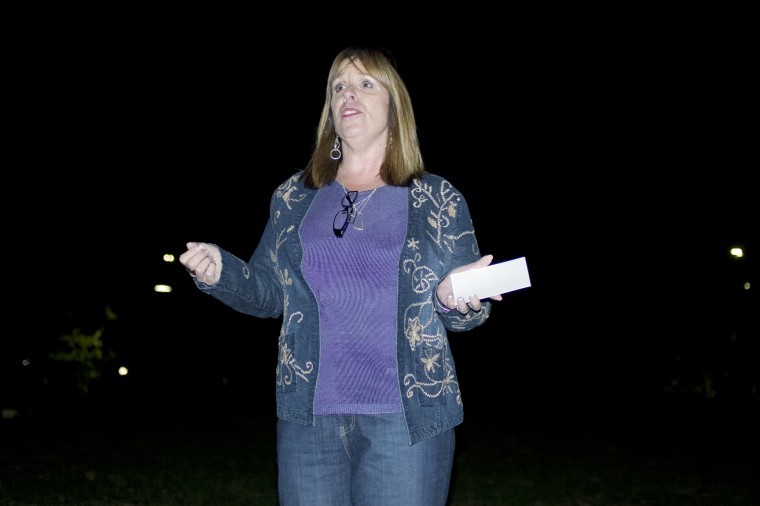Take Back the Night rally supports domestic violence victims
Joann Franzen candidate for state representative 45th district spoke a powerful message at the Taking Back the Night rally against domestic violence in the MLK Commons. Franzen spoke about being a victim of domestic violence as a teen.
October 2, 2012
“Huskies unite, take back the night!” a crowd shouted Tuesday night as part of a violence awareness march.
Victims of domestic and sexual abuse found support with Take Back the Night, a rally sponsored by the Women’s Studies Program and Women’s Rights Alliance. Take Back the Night started in England in 1977 as an effort to end nighttime violence against women, said Rebekah Kohli, Women’s Rights Alliance faculty adviser.
“Over the past few years we’ve been trying to expand it to end all violence,” Kohli said.
Kohli said the rallies raised awareness in the past and changed lives. The previous rallies were partially the cause for the blue-lit emergency posts around campus, she said.
Sophomore psychology major Rachel Murphy said she supports victims and will support the fight against violence until it ends.
“I would want any kind of abuse to end, and I would want women to have courage to say something,” Murphy said.
The rally began at the Martin Luther King Jr. Commons area, where presenters spoke about the different means of support available to victims. The presenters encouraged people in the audience to speak up. Marchers then walked through Lucinda Avenue and Annie Glidden Road and followed West Lincoln Highway to the east lagoon near Altgeld Hall. The marchers chanted, “No more rape, no more violence, no more victims, no more silence!” and waved signs as passing vehicles gave supportive honks.
Once at the lagoon, the marchers shared their stories around a campfire and talked about how violence has to stop.
“There is a lot of public discourse about things like domestic violence and sexual assault that puts so much blame on the victim,” said Marj Askins, community educator for Safe Passage.
Victims are never responsible for what they experience, Askins said. The responsibility needs to be put back on the offender, she said.
“I’ve always been an advocate of women’s rights, but…as I grew up I found men and children get abused as well,” said Iffat Fathima, one of the event organizers and senior kinesiology and physical education major.
Fathima said she took a stand against violence and will do whatever is needed to stop the violence.







